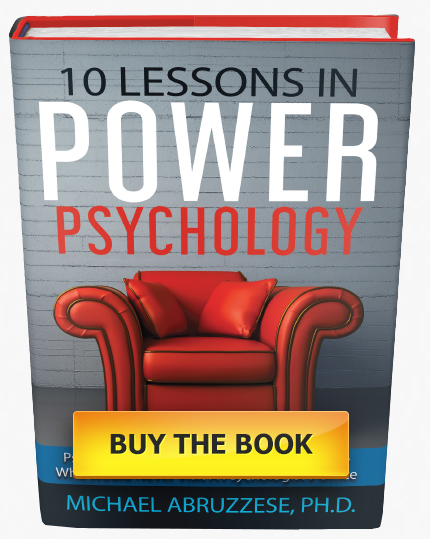Dealing With Post Holiday Blues In The Age of COVID
By Michael D. Abruzzese, Ph.D.
© Copyright 2021 Vista Health Services, Inc.
Posted 1/21/21
“Not being able to govern events, I govern myself” – Michel de Montaigne
The December and January holidays are portrayed as joyous, uplifting celebratory events full of warm homecomings, heartfelt, tearful reunions and good natured nostalgic reminisces of days gone by people who enthusiastically prepare to embrace the new challenges and changes that lie ahead. For some people those depictions may literally ring true, but the lofty holiday ideals of movie makers and advertising agencies simply don’t match the reality of many, if not most, Americans.
In the age of COVID, with so much loss all of us have to confront, those movie images draw us in ever deeper, not so much for what we missed, but for what might have been. How differently would we have treated ourselves and our loved ones, if we had only known what was to come? Some, confronting the same emotional turmoil, try to force others to adopt their own emotional turmoil as a solution to upsetting problems. That’s a foolish model, however, for anyone to follow.
Because we can’t know what is to come, though. Prophecy is a superstition – albeit a very compelling and seductive superstition – that eludes the rational person. We do not know what the future holds, and we cannot always predict events; but what we CAN know and predict is how we will react to future events. As Montaigne, a 16 century philosopher has stated, since we can’t control what happens in the world, we must therefore focus on managing our own reactions to what happens in the world.
No where is that better illustrated than people’s reaction to COVID and to the recent political maelstrom we have encountered. Perhaps it’s better that all this turmoil happens during the holiday season, bringing together all at once a chaotic blend of nostalgia, emotional upheaval and cognitive confusion. How do we reconcile all these events at this time? Our the feelings we are experiencing all due to COVID? What role does our loss of the holidays play in all this?
While much has been written about how joyous the holidays are supposed to be, little has been written about the stress, heartache and depression that are common to many at this time of year. The rosy depictions on stages and screens only serve to accentuate the harsh disconnection most people feel between their own emotional experiences and those emotions that they erroneously believe “should” be felt. This can lead to an even deeper sense of loneliness and depression than people would have otherwise experienced during this time of year if they didn’t have false images of idealized lives waved before them, much like a red flag is used to taunt an already aroused bull.
Not everyone feels deeply depressed during the holidays, of course, but a case of the holiday blues is common enough to most people to warrant attention in the workplace. Why? Well, to many people, the workplace is home. It’s their sanctuary and it’s where their social lives are. Their sense of being connected to the world is there as is also much of their self-esteem. To these people, not only are the holidays rough because of the disruption to their routine, but the holidays may also require the use of once-a-year holiday office social skills. Skills like knowing how to mingle with bosses or co-workers’ significant others, or how to accept and present gifts appropriately or how to display just the right touch of sociality and inhibition to get one through the endless rounds of office parties and client entertainment without losing your promotion or job. Add to that the wisdom of knowing how to deal with those who have failed at meeting these goals and with whom you must then interact after New Year’s Day and one can see how the ‘holiday fallout’ doesn’t really end for some people until maybe sometime in February.
But if that wasn’t enough stress to earn employees a well-deserved sigh of relief after the holiday gauntlet has been successfully run for another year, there is the issue of the post holiday letdown. While for some employees the holidays are depressing, for yet others it is the passing of the holidays which brings on the blues. They may miss the fun and conviviality. They are left feeling a little bit emptier, rightly wondering: Why can’t all year be cheerful and friendly? Why must all the other days be so drab and cheerless?
Why do companies have so much ‘mystery’ attached to them? What are the ‘unwritten rules?’
Why must all the other days be so drab and cheerless when compared to the Holidays of our imagination? Mixing with this bunch, of course, are the employees who are still reeling from yet another holiday reminder of how empty and hollow their lives may seem when compared to ‘everyone’ else’s life. It’s not a pretty picture, of course, and sometimes tempers get short and emotions get displaced onto co-workers or customers. Absenteeism may climb a bit and mistakes or job quality may suffer until workers get themselves back together. Most never show their mild distress and others only think they never show it, but astute managers and HR personnel can make a big impression on their workers and teams by simply being sensitive to the hidden emotions the holidays may bring out in others.
Even in “normal” times, it’s rarely necessary to overtly mention one’s concerns over a co-worker’s suspected post holiday blues; to do so may seem very intrusive and could serve to further accentuate a co-worker’s belief that his or her life and experience is indeed ‘different’ from everyone else’s. But it is perfectly reasonable to be concerned with a family member’s behavior or emotional state. Address the issue directly. Reach out to local support services for advice and recommendations.
When dealing with ‘old school’ relatives to whom seeking psychological help is still seen as a sign of weakness or defect, consider even just posting clippings from journals, newspapers or advice columns. Perhaps make a comment that “I guess the holidays are different for everyone,” or “Who would have thought holidays could be so stressful for so many people?” Or, more helpfully, you can reference yourself as the one who will seek help. “This is too much. I think it’s time to get some help for the way I feel.”
Taking steps to respectfully recognize and acknowledge the variety of emotions people experience during and after the holidays can go a long, long way toward increasing a sense of belonging and acceptance among relatives in this disruptive time of COVID and social upheaval. We can’t dictate how the world, or how others, will behave. But we CAN decide how we, ourselves, will behave. We don’t have to manage others. We just have to manage ourselves.
Michael Abruzzese, Ph.D. is a clinical psychologist on Cape Cod and a former Clinical Instructor at Harvard Medical School. He is the author of Ten Lessons in Power Psychology; Psychology Tips and Techniques For People Who Would Never Visit a Psychologist’s Office. https://www.amazon.com/Lessons-Power-Psychology-Techniques-Pscychologists/dp/0991011708



